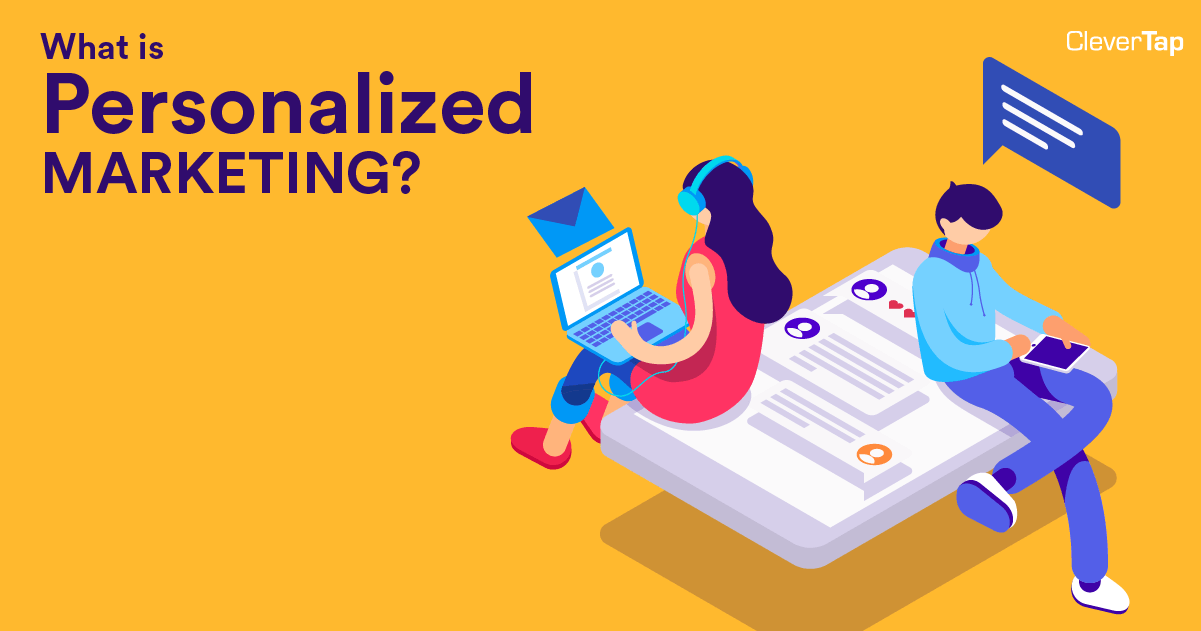In a nutshell, personalization is about providing relevant, individualized content. This might take the form of an email, a push or in-app notification, a landing page, or one of many other tactical pieces. Whatever the content is, you should be building and sending stuff customized to your target audience’s needs, actions, and even likes.
Personalization is also referred to as personalized marketing.

The goal of personalization is to engage users by communicating with them as individuals. Remember that people are receiving and viewing your content by themselves and never as a group. This means your marketing materials should be conversational and should touch on topics that the individual can relate to.
It is part and parcel of delivering a satisfactory user experience to your users. The more you are able to give them contextual and relevant content that matches their likes or needs, the better the overall experience.
Mobile personalization, in particular, is a crucial element to any marketing effort since you have more than 4.92 billion mobile users globally – roughly 66% of the planet’s population. And any marketer worth their salt wants to get their brand in front of those eyeballs.
The key lies in enhancing your communication to include user-specific data and user preferences.
For example: sending a generic push notification about various new releases on your video streaming app won’t work unless you know what genres a user is interested in. When you send horror fan Clive a push notification recommending a hot new slasher flick, that raises the chances of Clive clicking through and spending the next 1.5 hours in your app.
The short answer is: user segmentation plus AI and machine learning.
Your target audience is typically grouped by likes/values, in-app behaviors, or other criteria. This allows you to send custom messages in larger batches (AKA segments). After all, if you have a user base in the millions, it will be impossible to manually individualize an email to each recipient.
Instead, you utilize platforms that have artificial intelligence (AI) and machine learning (ML). That way, your system can automatically categorize your app users into segments, and feed them the corresponding content or offers that fit. AI and ML thus allows you to scale your personalization and engagement efforts.
When you send personalized marketing materials, there are three basic effects that occur.